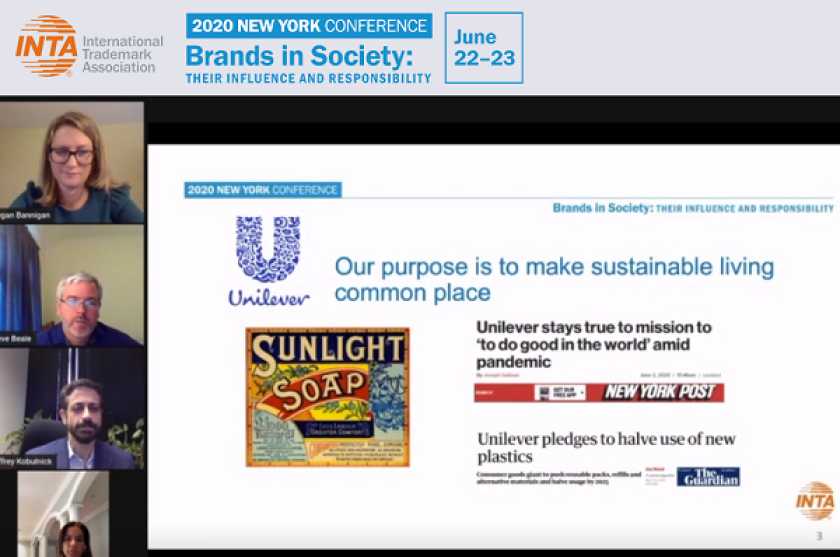Speaking at a virtual INTA conference on Tuesday, panellists from Mastercard, Unilever, Debevoise & Plimpton and Brutzkus Gubner reflected on how brands could strike a balance that would allow them to enforce their trademarks and avoid public relations scandals.
Cathy Lueders, assistant general counsel at Mastercard in Purchase, New York, said on the panel called ‘Enforcement in the court of public opinion: brand strategies in unpredictable times’ that the PR landscape had changed since she started practising law.
“If I look back at my 25 years as a lawyer, you would get a watch notice or see a potentially infringing mark, draft a cease and desist letter, mail it, wait for the response, and there would be a letter writing campaign back and forth.
“Today, you really have to be careful in enforcement. If you send a cease and desist letter, it could immediately get posted on a social media site and start a barrage of negative comments.”
Steve Beale, trademark counsel at Unilever in London, said that while the approach to trademark infringement had changed in some ways, it was – in other ways – the same as it has always been.
“You need to understand what you’re up against. You need good organisation and to be working with the right people. When I’m feeling out of control, I go back to basics.”
He added that companies that develop a brand protection strategy should focus on contracts, advertising, influencer agreements, design agency agreements and confidentiality. “Good process should not be abandoned because of the need for speed or agility.”
Brands might not be able to control everything from a central point, and might have to delegate responsibility throughout their organisation or to external teams, he added.
Jeffrey Kobulnick, partner at law firm Brutzkus Gubner in California, said brands should be mindful of what kinds of activities they send cease and desist letters for. “Not every use of a trademark without permission is a violation of trademark owners’ rights, so you really have to look at what’s going on.”
Kobulnick said brands should consider whether they are dealing with a major competitor or with an individual who might not be as savvy when it comes to IP. Sometimes, instead of sending cease and desist letters, brands can make a phone call, send an email or look on LinkedIn to see if there is a mutual connection before reaching out, he added.
Firms should also be courteous in their interactions with third-party websites when dealing with infringement on their platforms, he said. He added that such websites can sometimes help brands with trademark infringement issues and that there doesn’t need to be an adversarial relationship between the two sides.
“You can get more assistance by partnering with third-party websites that might not be the true culprit you want to go after,” he said.
Panellists added that brands should also be aware of how they use social media in enforcement. Megan Bannigan, New York-based counsel at Debevoise & Plimpton, noted that attorneys will sometimes find comments on social media and review websites that suggest that one brand’s similarity to another caused consumer confusion.
She added, however, that she had seen cases where the poster of the comments actually had some connection to the plaintiff and that the plaintiff had attempted to manufacture the confusion. Both plaintiff and defence attorneys should try to get to the bottom of where these comments come from, she said.
The INTA 2020 New York Conference, Brands in Society: Their Influence and Responsibility ended June 23.











